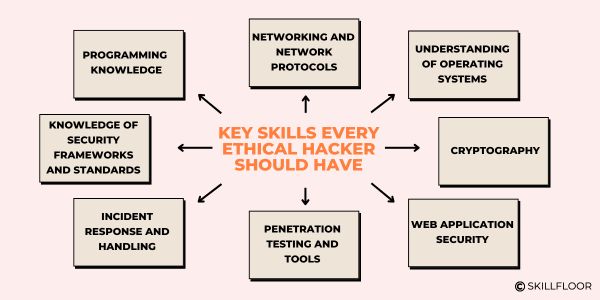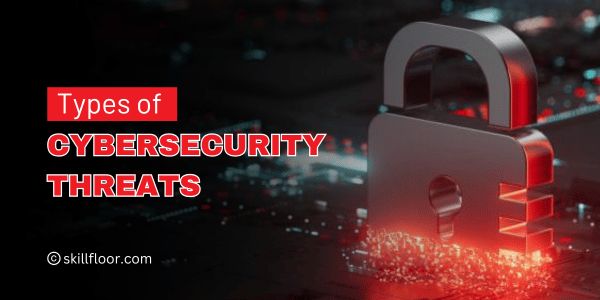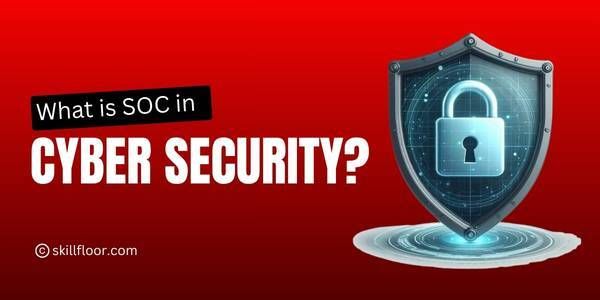Top Skills to Become an Ethical Hacker in Bhubaneswar
The top skills needed to become an ethical hacker in Bhubaneswar from networking to cybersecurity, and penetration testing fundamentals.

Are you interested in hacking but want to use your skills for good? As a Cybersecurity Expert, I have watched how ethical hacking has become an important part of today’s technology world, and Bhubaneswar is emerging as an important city for cybersecurity professionals. If you want to become an ethical hacker, you’re in the right place. Here, I will share the key skills you need to develop in order to succeed as an ethical hacker in Bhubaneswar, a city that is quickly growing into a tech center in India.
I can tell you that being an ethical hacker isn’t just about technical knowledge. It’s about having the right mindset and always being curious about how things work. You will need to learn programming languages, understand networks and security systems, and practice using various cybersecurity tools. Whether you’re just starting or looking to sharpen your skills, I’ll guide you through the most important areas to focus on. Let’s get started and take a closer look at the skills that will help you become a successful ethical hacker in Bhubaneswar.
What is Ethical Hacking?
Ethical hacking involves testing and securing systems, applications, and networks to identify and address potential security vulnerabilities. Ethical hackers use the same techniques as malicious hackers, but instead of exploiting the weaknesses, they report them to the system owners to prevent harm. This proactive approach helps businesses and organizations protect sensitive data and infrastructure from cyber criminals.
Ethical hackers can be employed in various roles, such as penetration testers, vulnerability assessors, or security consultants, and they are often hired to test the security of systems before they are deployed. As the demand for skilled cybersecurity professionals continues to rise, ethical hacking has become an essential field for anyone interested in tech, security, and problem-solving.
Why Bhubaneswar is a Great Place for Ethical Hackers
Bhubaneswar is fast growing as a technology and education center. With a growing IT industry, startups, and educational institutions, the city offers plenty of opportunities for ethical hackers. Cybersecurity professionals are in high demand as more companies realize the need to protect their systems from cyberattacks. Local organizations and government bodies are keen to invest in cybersecurity to stay ahead of emerging threats.
In addition, Bhubaneswar has a growing community of tech professionals. This provides a great environment for networking, attending workshops, and learning from experts in the field. The city is becoming one of India’s key tech centers, making it an ideal place for anyone looking to pursue a career in ethical hacking.
Key Skills Every Ethical Hacker Should Have

1. Programming Knowledge
Programming is the foundation of ethical hacking. A hacker needs to understand how code works, how vulnerabilities can arise from poor coding practices, and how to fix these vulnerabilities. Some essential programming languages include:
-
Python is particularly valuable for writing custom hacking scripts and automating tasks.
-
C/C++ is essential for understanding how memory and processes work, which is crucial for discovering vulnerabilities like buffer overflows.
-
JavaScript is often used in web applications, so it’s important for identifying web vulnerabilities like Cross-Site Scripting (XSS).
-
HTML and SQL knowledge is crucial for identifying common vulnerabilities in websites and databases, such as SQL injection.
By learning these languages, you will gain the ability to understand software at a deeper level and develop tools that can automate tasks during penetration testing.
2. Networking and Network Protocols
Networking is another cornerstone of ethical hacking. A hacker needs to understand how information is sent over the internet and within a network. Key networking concepts include:
-
TCP/IP: The foundation of communication between devices over the internet.
-
HTTP/HTTPS: Protocols used for transferring data over the web.
-
DNS (Domain Name System): The system that translates domain names into IP addresses.
-
UDP (User Datagram Protocol): A faster but less reliable protocol used for applications that require speed over reliability (like streaming services).
Understanding how network communication works helps you spot vulnerabilities like insecure communication or weak access controls. Familiarity with network traffic analysis tools like Wireshark will also help you intercept and analyze data packets to identify security flaws.
3. Understanding of Operating Systems
As an ethical hacker, you will be working across different operating systems. While Linux is the preferred operating system for ethical hackers due to its versatility and open-source nature, it's also essential to be familiar with Windows and macOS, as they are widely used in enterprise environments.
-
Linux: Linux offers a wide variety of tools for penetration testing and is highly customizable. Distros like Kali Linux and Parrot OS come pre-loaded with all the tools needed for hacking and security testing.
-
Windows: Many corporate environments run on Windows, so understanding Windows vulnerabilities like Windows SMB (Server Message Block) and the common misconfigurations that hackers exploit is vital.
-
macOS: While macOS is considered secure, ethical hackers need to understand its unique architecture and security mechanisms to identify potential flaws.
By being comfortable with these operating systems, you’ll be able to test and secure various environments.
4. Cryptography
Cryptography is the practice of protecting data by converting it into a secure format that can only be read or decrypted by authorized parties. Ethical hackers must understand cryptographic techniques to identify weaknesses in encryption and data storage mechanisms.
For example, if a website’s login page uses weak or outdated encryption for storing passwords, ethical hackers can exploit this flaw to gain unauthorized access. The main cryptographic techniques include:
-
Encryption: Protects sensitive data during transmission and storage.
-
Hashing: Used for securely storing passwords and data that doesn’t need to be decrypted.
-
Digital Signatures: Used to verify the authenticity of data.
Knowledge of cryptography helps ethical hackers assess whether sensitive information is being securely protected or if it’s vulnerable to attacks like man-in-the-middle (MITM).
5. Web Application Security
Web applications are among the most common targets for hackers, so understanding how to secure them is essential. Common vulnerabilities that ethical hackers look for include:
-
SQL Injection: When malicious SQL code is inserted into a web application to manipulate a database.
-
Cross-Site Scripting (XSS): When attackers inject malicious scripts into web pages viewed by other users.
-
Cross-Site Request Forgery (CSRF): A vulnerability that tricks the victim into performing an unintended action on a web application.
Tools like Burp Suite and OWASP ZAP are commonly used for testing these vulnerabilities. Ethical hackers can scan web applications to identify weaknesses and advise developers on how to fix them.
6. Penetration Testing and Tools
Penetration testing is the process of simulating a cyberattack to test the security of a system or network. Ethical hackers use a variety of tools to carry out these tests, including:
-
Metasploit: A powerful tool used for discovering vulnerabilities and developing exploits.
-
Nmap: Used to discover hosts and services on a network, and to identify open ports.
-
Wireshark: A network protocol analyzer used to monitor and capture network traffic for analysis.
These tools help ethical hackers identify security holes that could be exploited by malicious actors.
7. Incident Response and Handling
While penetration testing focuses on finding vulnerabilities, incident response is about responding to and managing real-time security breaches. Ethical hackers need to be able to investigate incidents, analyze how an attack happened, and prevent further damage. This includes:
-
Identifying how an attacker gained access to a system.
-
Containing the attack to prevent the attacker from causing more harm.
-
Performing forensic analysis to understand the scope of the attack.
Incident response skills are vital for ethical hackers working in a corporate setting where security breaches are a real threat.
8. Knowledge of Security Frameworks and Standards
Being familiar with security standards and frameworks will help ethical hackers understand how to set up and maintain secure systems. Key frameworks include:
-
OWASP (Open Web Application Security Project): Provides a list of the most common security risks and guidelines for securing web applications.
-
NIST (National Institute of Standards and Technology): Offers guidelines and standards for improving cybersecurity.
-
ISO/IEC 27001: A security standard for managing sensitive company information.
By understanding these frameworks, ethical hackers can align their efforts with industry best practices, ensuring that systems are as secure as possible.
Steps to Get Started as an Ethical Hacker in Bhubaneswar
Here are some practical steps you can follow to start your journey as an ethical hacker:
-
Learn the Basics: Start by learning networking, operating systems, and programming. Online courses and tutorials can be a great way to get started.
-
Practice Regularly: Set up your own lab environment to practice hacking skills. Websites like Hack The Box and TryHackMe provide virtual environments to test your skills.
-
Get Certified: Consider certifications like CEH (Certified Ethical Hacker) or OSCP (Offensive Security Certified Professional) to validate your skills and knowledge.
-
Join the Community: Attend local meetups, participate in online forums, and join cybersecurity groups to learn from others and build connections.
Best Institute for Ethical Hacking Course in Bhubaneswar: Skillfloor
If you’re looking to start your career in ethical hacking, Skillfloor is a leading Ethical Hacking training institute in Bhubaneswar. Skillfloor offers high-quality courses designed to teach you everything you need to know about ethical hacking, penetration testing, and cybersecurity. With their practical approach to learning and industry-relevant training, Skillfloor ensures that you gain hands-on experience and are ready for the job market.
Courses Offered by Skillfloor
Skillfloor offers three top courses in ethical hacking and penetration testing:
-
Certified Ethical Hacking Associate
This course is designed for beginners who want to start their journey in ethical hacking. It covers all the fundamentals of ethical hacking, including network security, vulnerabilities, and hacking tools. -
Certified Ethical Hacking Professional
If you're looking to take your skills to the next level, this course is for you. It goes deeper into penetration testing, security measures, and advanced hacking techniques. This course will equip you with the skills needed to work as a professional ethical hacker. -
Certified Penetration Testing Professional
This course focuses specifically on penetration testing. You'll learn how to test systems and networks for weaknesses, identify vulnerabilities, and protect against attacks. It’s ideal for those looking to specialize in penetration testing.
Course Details
-
Price: ₹14,900
-
Course Duration: 4 months
-
Internship: 1-month internship to give you real-world experience and hands-on practice.
-
Live Training: Yes, Skillfloor offers live, interactive training sessions with experienced instructors.
-
Career Assistance: Skillfloor helps you with job placement and career guidance, giving you the tools to succeed in your ethical hacking career.
Why Choose Skillfloor?
-
Practical Training: Skillfloor’s courses offer hands-on, practical training where you’ll use real hacking tools and techniques.
-
Experienced Trainers: You’ll be taught by experienced professionals who have real-world knowledge in ethical hacking and cybersecurity.
-
Career Assistance: Skillfloor doesn’t just train you; they also help you build a career by assisting with job placements and offering guidance on how to succeed in the cybersecurity industry.
-
Affordable Fees: For a high-quality education in ethical hacking, Skillfloor offers an affordable price of ₹14,900 for comprehensive training and career support.
Becoming an ethical hacker in Bhubaneswar requires a combination of technical knowledge, hands-on experience, and continuous learning. By mastering key skills like programming, networking, operating systems, and cybersecurity tools, along with certifications and practical training, you can build a strong foundation for a successful career in ethical hacking. With the growing demand for cybersecurity professionals in Bhubaneswar, now is the perfect time to develop these skills and pursue a rewarding career that helps protect digital systems and networks.






























































